Composting is an earth-friendly method of adding nutrient-rich humus back to depleted soil. Compost consists of decomposed organic matter from both the yard and kitchen. Teaching children the why and how behind composting helps them to become responsible, caring environmental stewards. Plus, it’s fun!
Here is a simple guide to getting started with composting with kids:
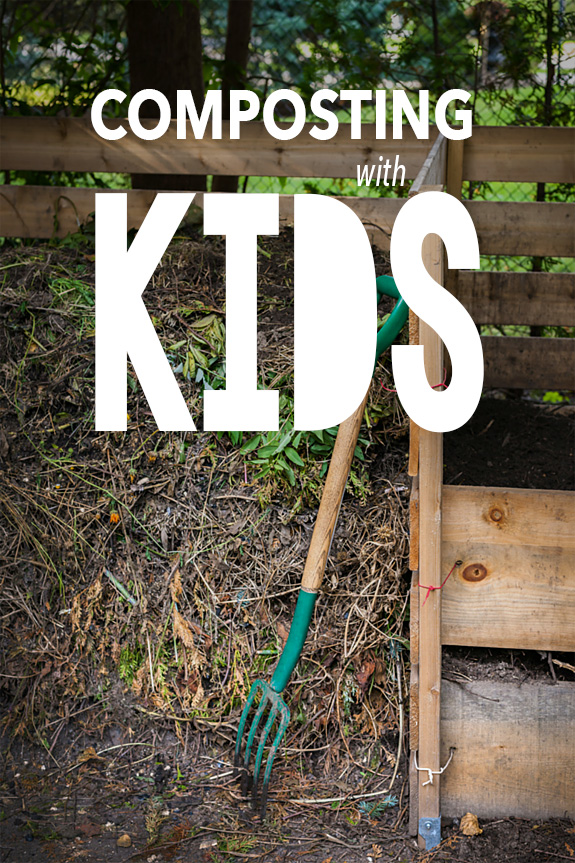
The Why
Plants need nutrients and water to grow. Nutrient-dense compost amends the soil and helps it to retain moisture. Composting is an eco-friendly alternative to chemical fertilizers, which can harm plants and animals. Additionally, composting can reduce household trash—by as much as 40%!
The How
There are many ways to compost. Some people use tumblers or bins, whereas others start a compost bile on bare ground. Currently, we use a plastic compost bin that does not have a bottom. Our compost touches earth, allowing worms and organisms to help break it down.
We keep a bowl on the counter for kitchen scraps. My kids know that apple cores, leftover vegetables and fruit, corn cobs, coffee grinds, and eggshells can be composted. The bowl fills up throughout the day and we dump it into the compost bin before bedtime. We also add yard waste; leaves, twigs, grass clippings, and pine needles can be quite beneficial. When we kept chickens, I added the wood shavings from the chicken coop. (That was the best compost we ever had!)
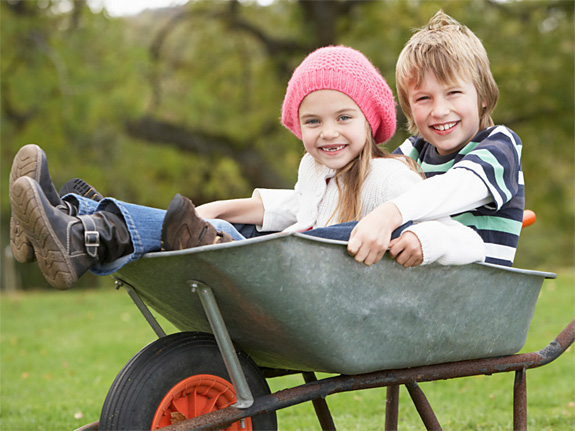
Keep compost moist (but not sopping wet), and turn it every few weeks. Occasionally, I like to add a bag of garden soil to give the vegetable scraps and yard waste something to break down in. I keep our compost bin covered so it retains heat and deters animals. A healthy compost pile should smell earthy, but not rancid.
When your compost is dark and crumbly, it’s ready to add to the garden! My kids like to help work it into our garden bed. While we work, we talk about how our garden gives to us—and we can give back to it!
For more composting information, check out this helpful page from the EPA.
More Gardening Projects for Kids:
- How to Make Seed Bombs
- Let’s Build a Fairy Garden Table!
- 5 DIY Gift Ideas for Gardeners
- Planting a Three Sisters Garden
- Make Your Own Seed Tape
- Growing Little Gardeners
- 5 Tips to Grow Your Own Garden
For more Spring activities to do with the kids, check out our Ways to Play Spring 2015 Printable Calendar . It’s full of fun and festive kid-friendly activities for March, April, and May!
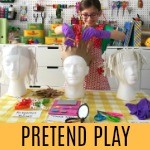
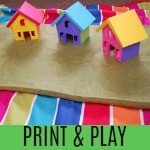
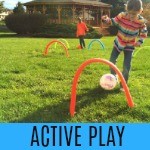

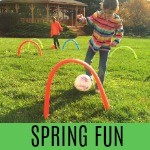


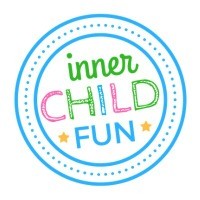


It was wonderful to compost with my kids! I completely agree with you that the sooner we teach them how compost and take care of their waste, the more responsible they would be! I like your idea so much that I will share it with my colleagues and try to organise a similar one with them too! Greetings, Waste Removal Bayswater Ltd.